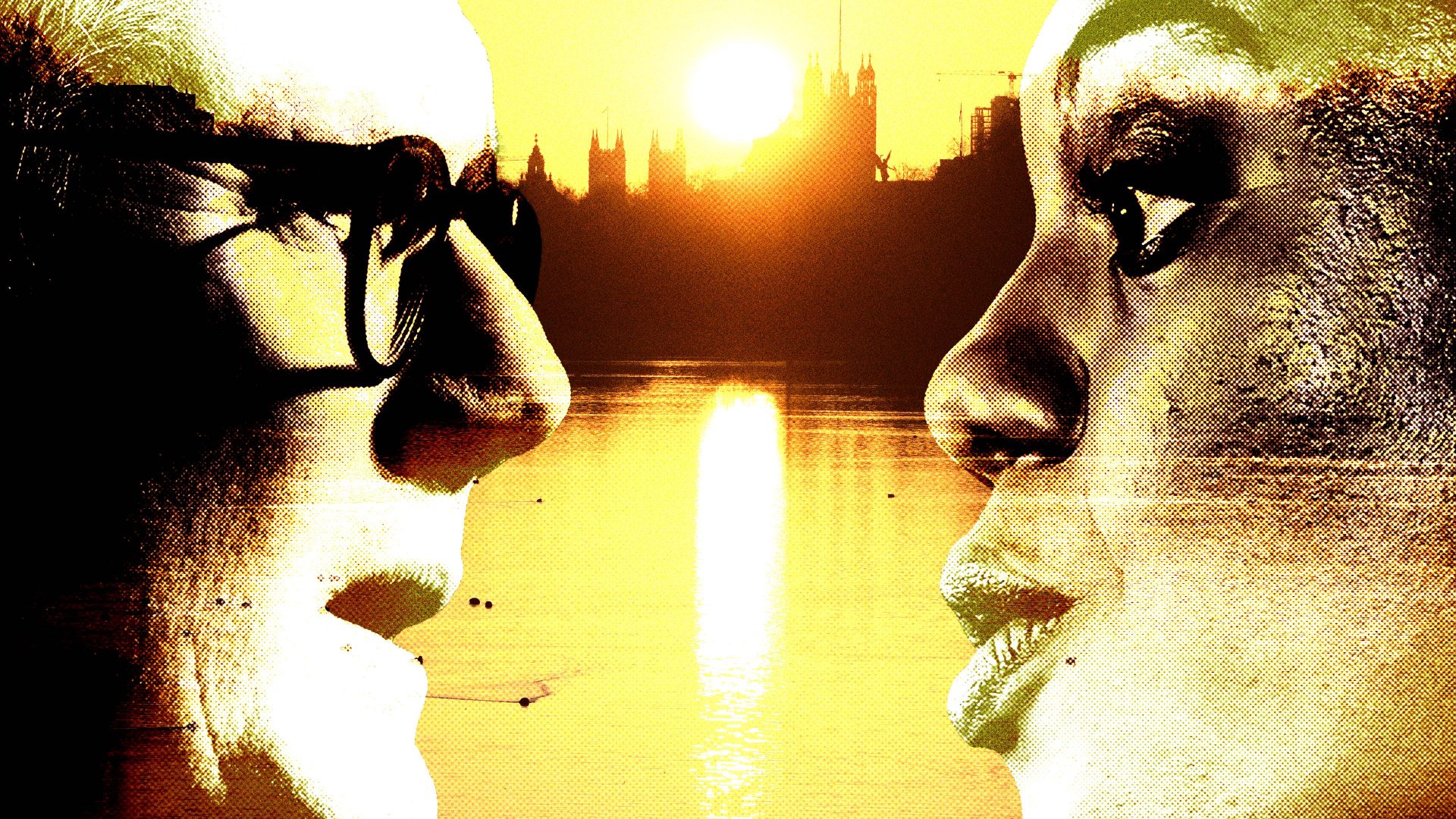Prediction is a fool’s game at the best of times, and the start of 2025 is anything but. Donald Trump is about to retake the White House, the UK public is sick of essentially every single political party – except a small slice that seem alarmingly happy about Reform – and it feels like any number of global flashpoints might escalate into conflict at any time.
Last year there was at least the benefit of knowing a 2024 general election was a near-certainty, as was a Conservative defeat in that contest. There should be less actual upheaval in UK politics in 2025, especially at the Westminster level, but that also means there are fewer obvious set-pieces.
As a result, what follows is less a set of predictions as a collection of themes to look out for through the year in UK politics – where conflict might come from, where the most obvious threats to political leaders are, and the questions some of them have to answer.
Theme one: Labour has to show it can actually get things done
As much as No 10 tries to insist otherwise, Labour’s return to government after 14 years was not, at first, a triumphant one. Keir Starmer’s first chief of staff barely lasted the summer, the only policies most voters remember are scrapping the winter fuel allowance and raising tax on “farmers” (and those buying up farmland for tax breaks).
Labour can argue it had a bad inheritance. There is at least some truth to the fact the Conservatives left a spending black hole even worse than was publicly known. It’s also true that years of anaemic growth and underfunded public services can’t be reversed overnight. But the patience of the public is low, especially when it comes to excuses – by the end of this year, people will want to see at least some improvement.
No 10 is trying to control how the public will judge the government, and it has already shifted the goalposts more than once: first there were the missions, then there were measurable “first steps” and now they have been replaced by “milestones”, all of which are somewhat conveniently not measurable until the end of the parliamentary term.
Voters decide what they care about, and may not be in the mood to choose to judge the government by a series of milestones it chose for itself after, not before, the election. Labour can argue it has years until a general election, but the disconnect between its majority and its polling numbers and favourability ratings is vast and cannot sustain indefinitely without consequence.
If Labour shows it can get shovels in the ground on housing, pass improvements to workers’ rights, improve bus or train services, and handle the NHS winter crisis – and start to improve ambulance waits and waiting lists for operations – voters might start to feel their faith in Labour last year was rewarded. If not, Starmer might find that even with his unassailable parliamentary majority, No 10 feels isolated indeed.
Theme two: actions have consequences
One likely crisis Labour will have to deal with is virtually entirely of its own making. Rachel Reeves needed to raise tens of billions of annual revenue with her first budget, partly to compensate for holes left by the Conservatives in the budget and partly to fund additional NHS spending.
Reeves made a clear political decision not to reverse the two reckless and unfunded cuts to national insurance made by Rishi Sunak and Jeremy Hunt in the run-up to the election, or to reverse her own promises on national insurance, income tax and VAT – at least according to her own interpretation of those pledges.
Instead, she opted for a double whammy of national insurance hikes on employers, increasing both the rate of the tax and also dramatically reducing the threshold at which it starts to be paid. The way she structured these tax reforms was entirely her own choice, and it could come back to haunt Labour throughout 2025.
Under the national insurance system, as it is now, a minimum wage employee working around 15-20 hours a week incurs no employer’s NI. After Reeves’s budget takes effect, that same employee will cost about £600 a year in tax. With changes to minimum wage too, a part-time worker on these hours will cost their employer about £1,400 more a year.
This will affect industries such as social care, childcare, retail and hospitality much more drastically than other businesses – sectors that are already often precarious and struggling to recruit staff while paying the bills. Needless to say, if nurseries are forced to close, that will cause significant political problems to the government.
Additionally, the government may soon find it has a mums’ problem – if you are looking at people who work low-wage jobs for 15-20 hours a week, it is overwhelmingly the mothers of young children, sometimes to pay essential bills, or sometimes to top up their partner’s earnings. Rachel Reeves could hardly have designed tax changes more likely to lead to working mums losing their jobs had she done it on purpose (though those that keep them will have more pay).
It feels like Labour “got away” with its 2024 budget, and in terms of the markets and the cost of borrowing it did – but the political hangover may not have even begun yet.
Theme three: Kemi Badenoch has a tougher year ahead than Keir Starmer
When it comes to tests at the ballot box during this year, Starmer is very lucky. Almost none of the major mayoralties are up for election in 2025, and neither Scotland nor Wales goes to the polls either. The local elections that are taking place are mostly seats last contested in 2021 – a good year for the Tories – and in areas which traditionally favour them.
As a result, Labour is only defending one council at the polls in May, and fewer than 400 council seats nationwide. Even if the results are disastrous for the party, the headline figures simply can’t look all that bad. Locals will be easy to shrug off.
Badenoch cannot say the same: the Conservatives are defending control of 25 councils and more than 1,400 council seats, many of them in areas where Reform could mount a serious challenge, and where Labour – even on its current low polling – might also be a contender.
That means that May’s elections are likely to prove a much graver test for Badenoch than for Starmer, as she has so much more to lose and very little time to change the impression of the party she leads after its 14 years in power.
Should Reform have a breakthrough election, the narrative of Nigel Farage supplanting the Tories and Badenoch being powerless to stop it may prove impossible to shake. Given that defeated rival Robert Jenrick has been all but openly gunning for Badenoch’s job from the shadow frontbench within weeks of Badenoch’s victory, she has almost no time to establish herself.
Badenoch’s rivals both within and without the party are closer and more aggressive than Starmer’s. She may find she has very little time to play with indeed.
Theme four: events, dear boy
Prime ministers obviously need to spend a significant amount of their time on the world stage, but Starmer has faced some valid criticism for the extent of his jetting around in his first few months, especially given the apparent lack of grip at home.
But the reality is world affairs will continue to occupy much of his time, and Starmer hasn’t really been able to build any meaningful groundwork. Both Germany and France are currently paralysed by their own domestic politics, with Olaf Scholz almost certain to be ejected from office, and Macron stuck in office but not in power.
The reality of Trump’s return and European paralysis – and the impending need to tackle the crises in Ukraine, Syria and Gaza alongside potential new trade war issues raised by Trump means someone, somewhere needs a plan. At the very least, Starmer is going to need some kind of playbook for how he responds to everyone else’s moves. Things are unlikely to be quiet.
Inevitably, given the nature of the news at present, there is a good chance this list of themes will look hilariously quaint in a year’s time – and that’s even without wondering about the small stuff, like whether Farage will spend even a single overnight stay in his constituency this calendar year.
But on the domestic political front, it’s set to be a year with few known set-pieces, but much to do for Starmer – especially if he is going to see off the populist threat that is sweeping much of the world, and increasing at home.




